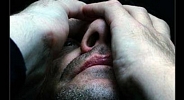|
|
 Acne (1,500) Acne (1,500)
 Addictions (1,500) Addictions (1,500)
 Advice (1,500) Advice (1,500)
 Allergies (1,092) Allergies (1,092)
 Alternative Medicine (1,500) Alternative Medicine (1,500)
 Anti Aging (1,500) Anti Aging (1,500)
 Breakup (1,500) Breakup (1,500)
 Cancer (1,499) Cancer (1,499)
 Dental Care (1,500) Dental Care (1,500)
 Disabilities (1,500) Disabilities (1,500)
 Divorce (1,500) Divorce (1,500)
 Elderly Care (1,498) Elderly Care (1,498)
 Goal Setting (1,500) Goal Setting (1,500)
 Hair Loss (1,500) Hair Loss (1,500)
 Health and Safety (1,497) Health and Safety (1,497)
 Hearing (1,500) Hearing (1,500)
 Law of Attraction (1,499) Law of Attraction (1,499)
 Marriage (1,500) Marriage (1,500)
 Medicine (1,497) Medicine (1,497)
 Meditation (1,499) Meditation (1,499)
 Men's Health (1,500) Men's Health (1,500)
 Mental Health (1,500) Mental Health (1,500)
 Motivational (1,500) Motivational (1,500)
 Nutrition (1,495) Nutrition (1,495)
 Personal Injury (1,499) Personal Injury (1,499)
 Plastic Surgeries (1,500) Plastic Surgeries (1,500)
 Pregnancy (1,496) Pregnancy (1,496)
 Psychology (1,500) Psychology (1,500)
 Public Speaking (1,500) Public Speaking (1,500)
 Quit Smoking (1,500) Quit Smoking (1,500)
 Religion (1,499) Religion (1,499)
 Self Help (1,500) Self Help (1,500)
 Skin Care (1,500) Skin Care (1,500)
 Sleep (1,500) Sleep (1,500)
 Stress Management (1,500) Stress Management (1,500)
 Teenagers (1,492) Teenagers (1,492)
 Time Management (1,500) Time Management (1,500)
 Weddings (1,500) Weddings (1,500)
 Wellness (1,500) Wellness (1,500)
 Women's Health (1,500) Women's Health (1,500)
 Women's Issues (1,500) Women's Issues (1,500)
|
Now here`s a dilemma! If you`re like me and prefer a natural alternative to pharmaceuticals whenever possible, it would seem an easy enough task to choose `au naturale` products for menopausal symptoms. But here`s the rub, as `natural` products do not need to adhere to the strict regulations and rigorous testing that medication does, how do we know what is safe? For instance, it appears that one of main herbs used for the menopausal symptoms is Black Cohosh and I have often read of women who report great relief by using this particular herb. On the other hand, a British newspaper reported that "herbal remedies to treat menopausal symptoms are unproven and could actually damage health." It went on to claim that no strong evidence that herbal remedies such as ginseng, black cohosh and red clover have any effect on hot flashes, sleeplessness and loss of libido associated with menopause. It said that more menopausal women have turned to using herbal remedies following recent HRT health scares, but their safety is untested, and there is limited information on how they interact with other medicines. It did say that the only treatment which seemed to have any evidence of an effect was black cohosh, but that this can potentially cause liver toxicity. However, the researchers found that this area of study is under-researched and under-reported and so the topic still appears to be wide open for debate. However, natural remedies which are completely safe and proven to be beneficial to good health and well being are: Relaxation techniques, either practised alone or as part of a group
Cut down on smoking (preferably stop altogether), as it is reported that the first puff of each cigarette can trigger hot flashes
Regular exercise(the dreaded `e` word) improves circulation, and may help reduce the intensity and frequency of hot flashes Complementary therapies such as aromatherapy, massage, reflexology and yoga. It is advisable to consult a qualified therapist specialising in the field If you would prefer to explore the natural route, be sure to consult with your doctor before commencing.
|
|
|



